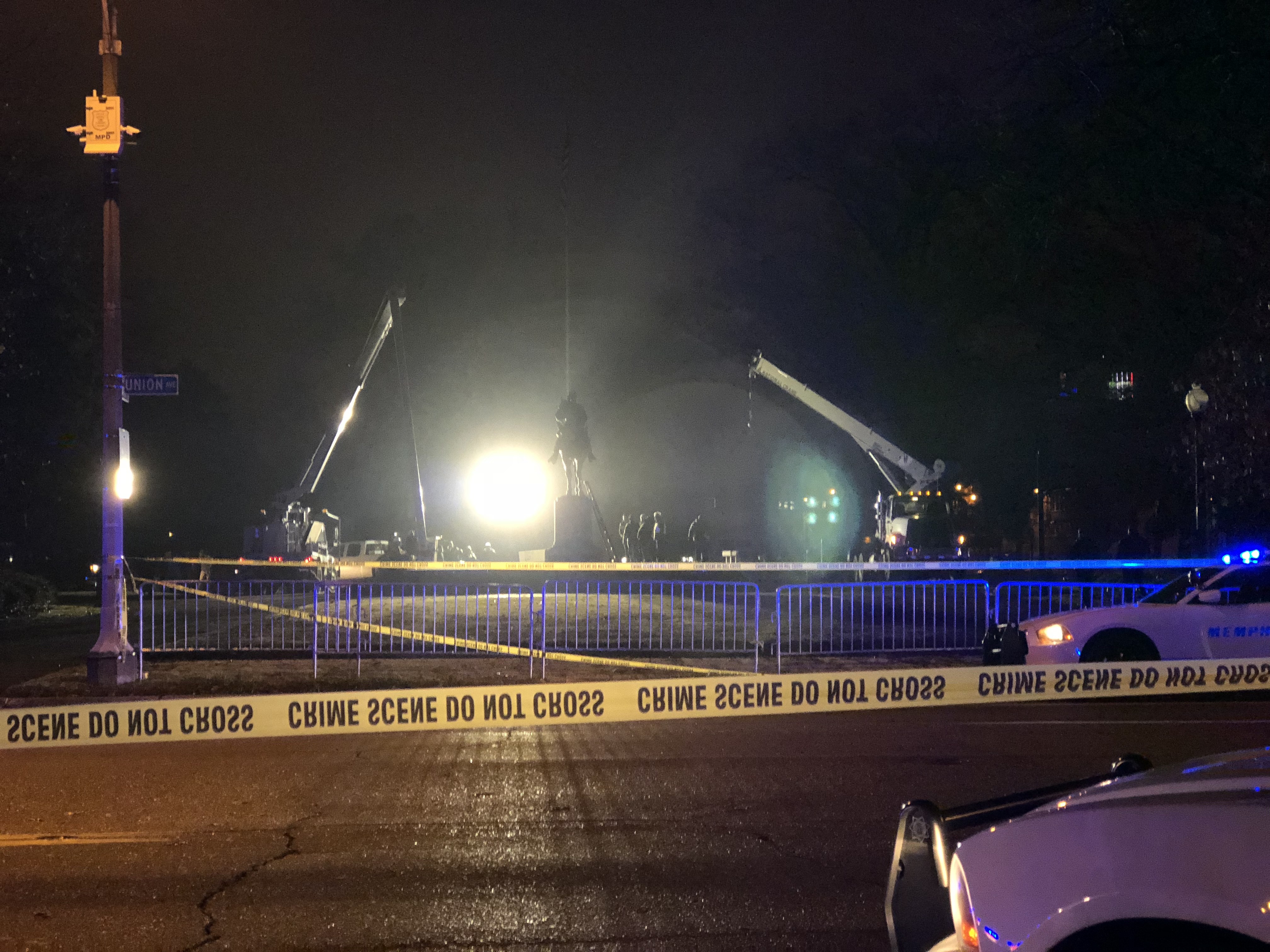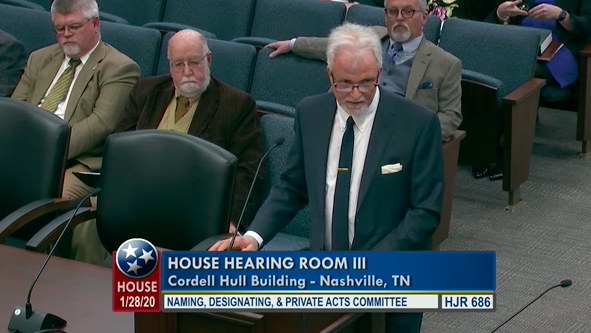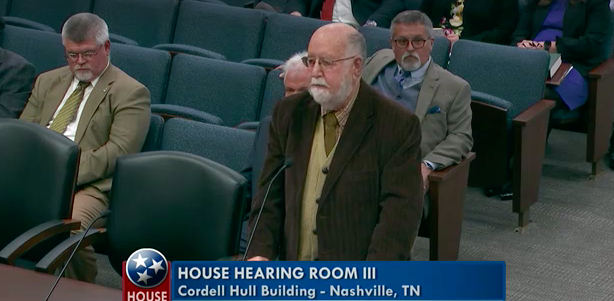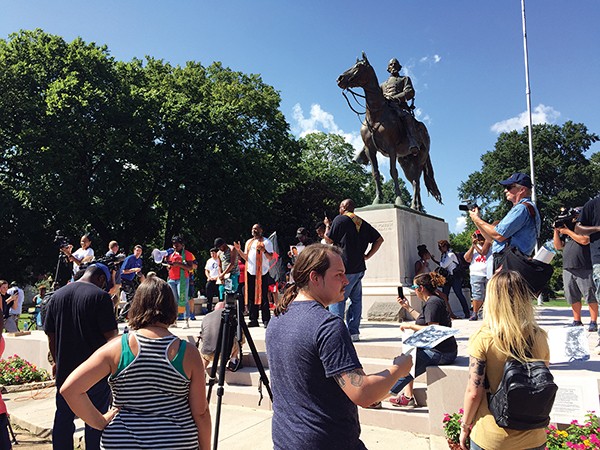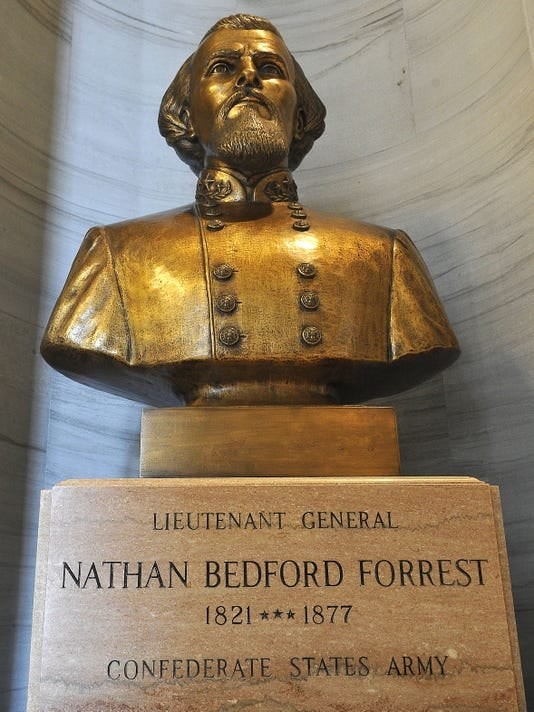 Nathan Bedford Forrest Boyhood Home/Facebook
Nathan Bedford Forrest Boyhood Home/Facebook
The decision to remove the bust of slave trader, Ku Klux Klan member, and disgraced Confederate general Nathan Bedford Forrest from the Tennessee State Capitol building is now in the hands of the Tennessee Historical Commission.
The move comes after the State Capitol Commission voted 9-2 to move the bust and two others from alcoves in the halls between the House and Senate chambers. The original vote was only to include Forrest’s bust but was changed to include the busts of Admiral David Farragut and U.S. Navy Admiral Albert Gleaves in order to move them to a new military exhibit at the Tennessee State Museum. The move would leave no busts in the Capital hallway alcoves.
The amendment to change the vote to include the other two busts came from Tennessee State Comptroller Justin Wilson. The move seemed to take many commissioners by surprise, especially those not from Governor Bill Lee’s administration. The new vote would allow the alcoves to be filled with elected officials from Tennessee, apparently picked by members of the Tennessee General Assembly.
Wilson said the original intent of the busts in the alcoves was to establish a hall of naval heroes. Farragut was a Union leader. So, in 1978 Sen. Doug Henry (D-Nashville) pushed a resolution to include Forrest in the hall to balance the scale between Union and Confederate soldiers.
“Let me say, the [1978] resolution was not to establish white supremacy or any nonsense like that,” Wilson said. “People who say that are misinformed.”
He said the resolution passed unanimously in both houses of the legislature and had full support of the Black Caucus at the time.
Howard Gentry, Criminal Court Clerk of Davidson County and one of only three Black members of the commission, said he attended Thursday’s meeting to vote to get the Forrest bust removed, not the others. He worried that adding the others would delay the process or muddy the issue before the historical commission.
Wilson said he had not asked whether or not the Tennessee State Museum would take all three and wasn’t sure they were prepared to take Forrest’s. Gentry said they were ready for the Forrest bust three years ago when the issue was taken up before a different Capitol Commission.
Ashley Howell, executive director of the museum, said if the Historical Commission approved the move, all three busts could be quickly moved to the museum. Preparing an exhibit, though, would take some time, she said. The busts are all the property of the museum, she said. And of creating exhibits and displaying artifacts, she said, “That’s what we do.”
Gentry asked whether or not the Historical Commission would have to consider all three busts as a package deal or if they could take up the Forrest bust issue as a separate matter. Butch Eley, Capitol Commission chairman and Finance and Administration Commissioner, he didn’t think it mattered to the Historical Commission if it were one or three busts and that they would “take whatever action based on their own volition.”
Gentry continued, though, to push for clarification. Would the waiver sought by the Capitol Commission have to include all three busts, or could they consider Forrest’s separately? Christie Allen, the Historical Commission’s legal counsel, said she’s never been through this process with the commission before, so she couldn’t say for certain.
She gave the steps in the process to get a waiver for the group. In doing so, she landed at the assumption that the “commission can do whatever action deemed for approval. They could approve one or three or none.”
The amendment passed with only Dr. Logan Hampton, president of Jackson’s Lane College and the West Tennessee delegate to the Capitol Commission, voting against it.
A vote was taken on the move that included all three statues. It passed with only Sen. Jack Johnson (R-Franklin) and Rep. Matthew Hill (R-Jonesborough) voting against it. Both lawmakers said their votes reflected the collective will of their respective bodies.
“I voted for an amendment I’m not comfortable with,” Gentry said before the final vote. “I want to see Nathan Bedford Forrest moved off the second floor. Sometimes you have to do something you’re not comfortable with, as long as it’s not wrong.
“I hope and pray that voting for the amendment is not going to in any way impede or deter what my intent was today.”
 Nathan Bedford Forrest Boyhood Home/Facebook
Nathan Bedford Forrest Boyhood Home/Facebook 